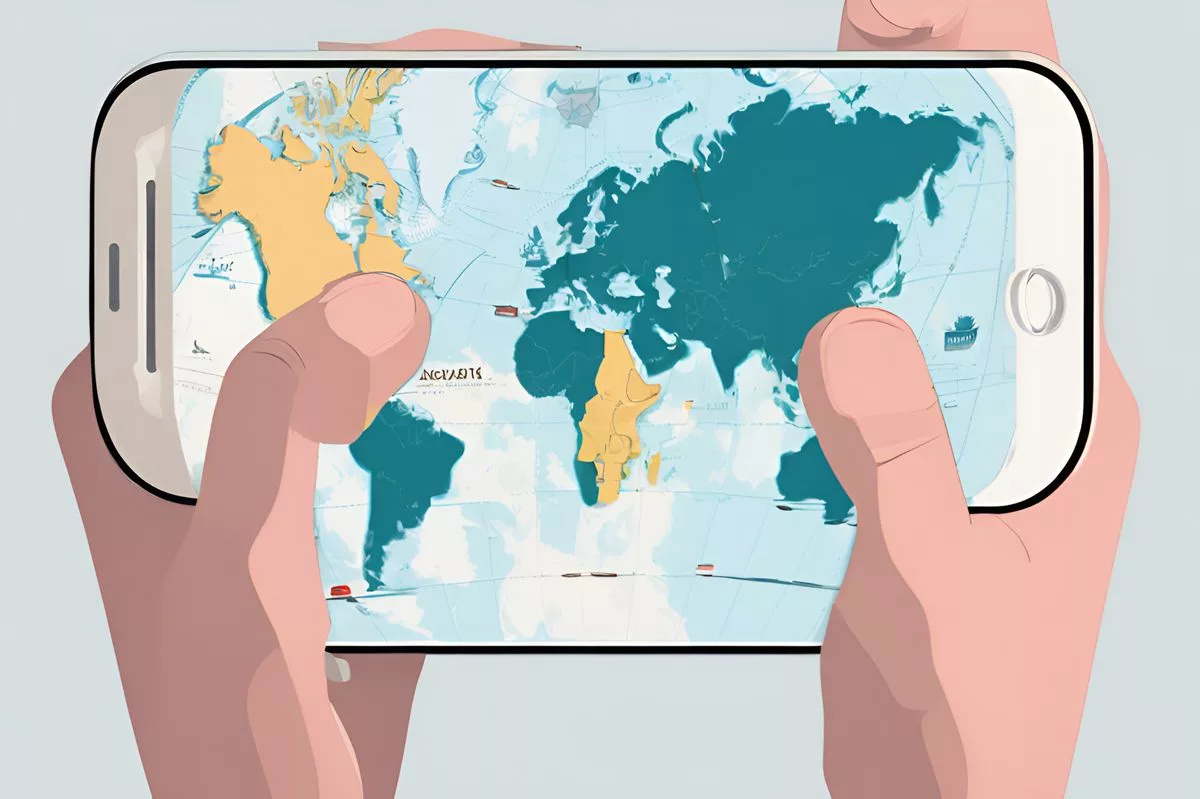South Africa Connect Phase 2 Project is a groundbreaking initiative to reduce the digital divide and provide comprehensive connectivity to all educational, health, and governmental facilities. The project aims to enhance the digital footprint of SMMEs and create job opportunities for trained experts and semi-skilled workers. Collaborative efforts by Broadband Infraco, SENTECH, and SITA are striving to deliver broadband services to South African citizens, ensuring digital inclusivity and promoting the country’s digital economy. With the launch of this project, South Africa is taking a significant step towards bridging the digital gap and ensuring universal connectivity for all.
Bridging the Digital Gap: South Africa Connect Phase 2 Project is a groundbreaking venture aimed at reducing the digital divide. SA Connect serves as the government’s tactical tool to bridge the digital divide by guaranteeing connectivity to all educational institutions, health facilities, and governmental establishments. The project also aims to enhance the digital footprint of SMMEs, enabling them to extend their reach beyond their immediate vicinity.
South Africa is vigorously pursuing its mission to reduce the digital divide in the digital age. The South Africa Connect Phase 2 Project, a groundbreaking venture, has been unveiled, championing comprehensive connectivity and reinforcing the country’s dedication to promoting digital inclusivity.
Project Launch and Significance
Deputy President Paulus Mashatile, flanked by prominent figures including the Minister of Digital Communications and Digital Technologies Mondli Gungubele and Limpopo Province MEC Rodgers Monama, among others, inaugurated the project in Modimolle, Waterberg District, Limpopo Province. Mashatile lauded the continuous endeavors by the Department of Communications and Digital Technologies to create digital linkages within communities and minimize the digital chasm. He highlighted the pivotal role of internet connectivity in contemporary society, which is fundamental to sectors such as education, health, and the economy.
The inauguration aligned with the build-up to the country’s seventh National General Election. Mashatile looked back at the nation’s evolution post the liberation of South Africa in 1994 and linked the SA Connect program to the embodiment of the Freedom Charter, which aspires to uplift the lives of the impoverished and sidelined sections of society.
Project Mission and Components
SA Connect serves as the government’s tactical tool to bridge the digital divide by guaranteeing connectivity to all educational institutions, health facilities, and governmental establishments. It seeks to upgrade connection speeds, paving the way for efficient learning, e-health, and access to governmental services. The objective is to establish a comprehensive network of networks, offering affordable broadband to citizens, businesses, and the public sector within a timeframe of 36 months.
The SA Connect project collaborates with public and private entities in deploying infrastructure across the country and encompasses three aspects: Household Connectivity, Government Facility Connectivity, and Social Obligations Connectivity.
Job Creation and Opportunities
The project is projected to provide direct employment for approximately 4,505 trained experts and semi-skilled workers, leading to further opportunities downstream. Beyond job creation, the project aims to open doors for 75 Small, Medium and Micro Enterprises (SMMEs), fostering diversity and inclusivity.
This inclusivity is mirrored in the currently appointed 16 SMME companies, which comprise three youth-owned, two women-owned, and one owned by an individual with a disability. These enterprises have already generated 200 direct jobs, contributing to a more balanced and equitable economy.
Partnerships and Community Impact
Collaborative efforts by Broadband Infraco (BBI) and SENTECH, entities under the Department of Communications and Digital Technologies (DCDT), along with the ICT industry, are striving to deliver broadband services to South African citizens. The strategy involves setting up over 32,055 community Wi-Fi hotspots, promising connectivity for around 5.6 million households over three years. This is a significant step towards assuring universal connectivity, irrespective of geographical location or socio-economic background.
The State Information Technology Agency (SITA) is actively participating in this initiative by providing and maintaining connectivity to government sites, ensuring efficient access to government facilities. The project also aims to enhance the digital footprint of SMMEs, enabling them to extend their reach beyond their immediate vicinity.
Future Prospects and Digital Inclusion
South Africa is making strides towards digitalization, with plans to terminate all analogue signals by the end of the year. The government is subsidizing decoders for households that are unable to afford them due to their socio-economic circumstances. Additionally, SENTECH is launching freevisionplay, a platform set to revolutionize content distribution in South Africa by hosting a wide range of broadcasters.
The SA Connect programme also envisages the establishment of Cyberlabs, state-of-the-art computer laboratories furnished with the latest technology and digital tools, across the country. This move aims to guarantee that schools upgrade their computing skills, promoting inclusivity in the Fourth Industrial Revolution and gearing up for the digital economy of the future.
With the commencement of the South Africa Connect Phase 2 Project, the metaphorical digital gate has been unlocked, making the cultural gems of humanity accessible to all. This project undoubtedly serves as a milestone towards a digitally inclusive South Africa, ensuring that no individual is left behind as the country pioneers new territories and harvests the fruits of the digital economy.
What is the South Africa Connect Phase 2 Project?
The South Africa Connect Phase 2 Project is a groundbreaking initiative aimed at reducing the digital divide and providing comprehensive connectivity to all educational, health, and governmental facilities. The project seeks to enhance the digital footprint of SMMEs and create job opportunities for trained experts and semi-skilled workers. Collaborative efforts by Broadband Infraco, SENTECH, and SITA are striving to deliver broadband services to South African citizens, ensuring digital inclusivity and promoting the country’s digital economy.
What is the mission of the South Africa Connect Phase 2 Project?
The mission of the South Africa Connect Phase 2 Project is to guarantee connectivity to all educational institutions, health facilities, and governmental establishments in South Africa. The project seeks to upgrade connection speeds, paving the way for efficient learning, e-health, and access to governmental services. The objective is to establish a comprehensive network of networks, offering affordable broadband to citizens, businesses, and the public sector within a timeframe of 36 months.
What are the components of the South Africa Connect Phase 2 Project?
The South Africa Connect Phase 2 Project encompasses three aspects: Household Connectivity, Government Facility Connectivity, and Social Obligations Connectivity. The project collaborates with public and private entities in deploying infrastructure across the country.
How does the South Africa Connect Phase 2 Project promote job creation and opportunities?
The South Africa Connect Phase 2 Project is projected to provide direct employment for approximately 4,505 trained experts and semi-skilled workers, leading to further opportunities downstream. Beyond job creation, the project aims to open doors for 75 Small, Medium and Micro Enterprises (SMMEs), fostering diversity and inclusivity.
What partnerships are involved in the South Africa Connect Phase 2 Project?
Collaborative efforts by Broadband Infraco (BBI) and SENTECH, entities under the Department of Communications and Digital Technologies (DCDT), along with the ICT industry, are striving to deliver broadband services to South African citizens. The State Information Technology Agency (SITA) is actively participating in this initiative by providing and maintaining connectivity to government sites, ensuring efficient access to government facilities.
What are the future prospects of the South Africa Connect Phase 2 Project?
The South Africa Connect Phase 2 Project envisages the establishment of Cyberlabs, state-of-the-art computer laboratories furnished with the latest technology and digital tools, across the country. Additionally, SENTECH is launching freevisionplay, a platform set to revolutionize content distribution in South Africa by hosting a wide range of broadcasters. With the commencement of the South Africa Connect Phase 2 Project, the metaphorical digital gate has been unlocked, making the cultural gems of humanity accessible to all.












